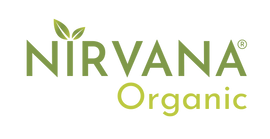We all know that the quality of food we eat affects our health. And we know that organic food is better for our body and the environment. Organic products are free from any harmful chemicals, synthetic herbicides, pesticides, and other additives. When the customer chooses to purchase organic, many of them tend to see shelf life and product information to make their decision. Clear display of certification marks or labels on an organic product can help them to choose the appropriate product.
Confusion for Organic Labels
Have you ever thought about the difference between organic and natural food? Do you know what the authentic certification mark for organic or natural food looks like? Studies show that 1 in 3 consumers can't tell the difference. Labels like "Made with Organic Ingredients" sound good, but may not be fully organic. Plus, terms like "pesticide-free" or "free-range" can be misleading and unregulated. With so much confusing information, it's no wonder many consumers struggle to understand organic labels.
Organic vs. Conventional
Organic and non-organic foods are produced differently. While they have similar amounts of protein, fat, carbohydrates, and fiber, organic foods often have more antioxidants and omega-3 fatty acids in dairy. While organic food has fewer toxic substances, the long-term effects of consuming pesticides in conventional food are uncertain.
The farming methods differ significantly too. Conventional farming uses a lot of fossil fuels and produces more waste. Organic farming, however, uses natural resources and animals to create healthier soil and fertilizer without chemicals, resulting in a more sustainable cycle.
Understanding Organic Labels
Labeling is most important for savvy shoppers. First, they need to understand the basics. 100% Organic" means all ingredients are organic. "Made with Organic Ingredients" means at least 70% are organic. "Natural" isn't regulated and can mean anything, generally implying no artificial ingredients but not how it was grown or raised. Certifications vary by organization.
Food Safety and Standards Authority of India- FSSAI
FSSAI works to ensure the safe availability of nutritious food for human consumption through production, storage, distribution, sale, and import. Apart from this, it helps in maintaining the standards of production and sale of food items at all the states, districts, and gram panchayat levels of the country.
It also checks the quality of retail and wholesale food items from time to time. According to a notification issued by FSSAI, it was made illegal to sell organic food products without proper labeling.
The following two authorities were nominated for certification-
Apart from this, companies labeling their products as 'Organic Products' can also voluntarily obtain the 'JAIVIK BHARAT' logo from FSSAI. This system provides complete and accurate information on the biological status of a food product.
The Jaivik Bharat logo helps you distinguish organic products from non-organic ones. It has the tagline "Jaivik Bharat" at the bottom, which means Organic Food from India.
Educate Yourself and Make Informed Choices!
By understanding these labels, you can navigate the world of organic products with more confidence and make informed decisions about the food you buy.
Click here and explore a wide range of certified organic products by Nirvana Organic!!!




